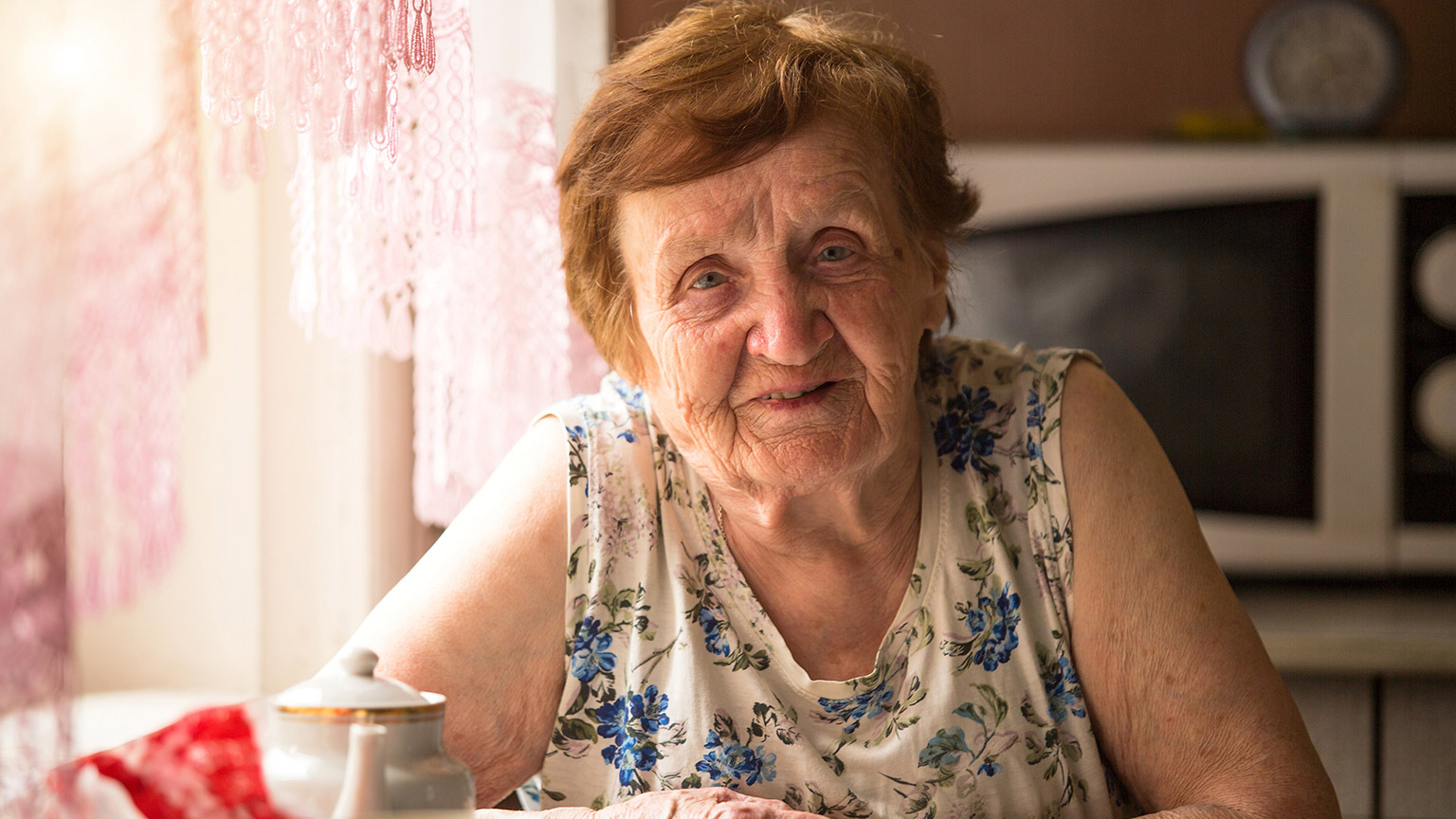People with 'complex needs' have multiple health, functional and/or social problems, vulnerable health, or are at risk of functional decline and/or hospital admission.
Source: Ministry of Health, NZ
Support workers in New Zealand often find themselves caring for older individuals who not only grapple with the challenges of aging but also contend with one or more chronic health conditions. These individuals have intricate care requirements, often necessitating a multifaceted approach that addresses a range of complex care needs.
In this module, we will look at your role in providing care for people with complex needs including:
- working collaboratively
- developing and implementing care plans
- coaching and mentoring peers in caring for people with complex needs.

A complex need refers to a situation or condition that requires multiple, interconnected interventions or support services to address them adequately. It often involves a combination of various factors, such as physical, psychological, social, or environmental elements, which make the situation more intricate and challenging to resolve. In the context of aged care and support, complex needs in older individuals may result from a combination of health issues, cognitive impairments, emotional challenges, and social limitations. Successfully addressing complex needs requires a holistic and coordinated approach, involving various professionals, caregivers, and services working collaboratively to develop a comprehensive and personalised care plan that meets the individual's unique requirements.
Reflection
Reflect on the individuals under your care in your workplace. How many of them exhibit complex needs, and what specific challenges and requirements do they present?
Complex needs in aged care and support refer to a situation where older individuals require multifaceted and specialised assistance due to a combination of physical, cognitive, psychological, and social challenges. Common aspects of complex needs in aged care include:
- Physical health issues: Older adults may have multiple chronic health conditions, mobility limitations, or disabilities that require medical attention and support with daily tasks like dressing, bathing, or eating.
- Cognitive impairment: Dementia and other cognitive disorders can affect memory, judgement, and decision-making abilities, necessitating personalised care and supervision.
- Mental health concerns: Elderly individuals might experience depression, anxiety, or other mental health issues that demand sensitive and specialised support.
- Social isolation: Many older adults face social isolation due to the loss of friends or family, leading to feelings of loneliness, which require attention and intervention.
- Communication difficulties: Some seniors may have communication impairments or language barriers, making it challenging for them to express their needs effectively.
- Behavioural challenges: Certain conditions may lead to challenging behaviours, such as agitation or aggression, which require skilled care and understanding from caregivers.
- Medication management: Seniors with complex needs often have multiple medications to manage, and ensuring they take the right doses at the right times is crucial for their well-being.
- Nutritional needs: Older individuals may have specific dietary requirements due to health conditions, and ensuring they receive proper nutrition is essential for their overall health.
- End-of-life care: For some elderly individuals with complex needs, palliative care and end-of-life support may be necessary to provide comfort and dignity in their final days.
To address complex needs in aged care and support, a multidisciplinary approach is essential. This typically involves healthcare professionals, caregivers, family members, and social services working together to create a comprehensive care plan that meets the individual's specific requirements and enhances their quality of life. It's essential to treat each elderly person as an individual with unique needs, preferences, and life experiences, fostering a person-centred approach to care.
Scenario and Reflection
You work as a support worker in a specialised care facility. Your role includes caring for Mr. Johnson, a 70-year-old resident with multiple complex care needs.
Mr. Johnson has a history of diabetes, which is well-managed with insulin. However, he also suffers from severe mobility issues due to a recent stroke, which has left him partially paralysed on his right side. This immobility has led to concerns about pressure ulcers, and he requires assistance with repositioning and turning regularly.
In addition to his physical health challenges, Mr. Johnson has been diagnosed with Alzheimer's disease. He often becomes disoriented and agitated, requiring a patient and understanding approach to caregiving.
Furthermore, Mr. Johnson experiences episodes of depression, which can impact his overall well-being. Managing his emotional and mental health is an essential aspect of his care plan.
What specific considerations and challenges would you anticipate when providing care for Mr. Johnson and his complex needs?

Supporting someone with complex needs, especially in the context of aged care, requires a compassionate and comprehensive approach. Here are some essential guidelines to consider:
| Individualised care plan | Understand the person's specific needs and preferences through thorough assessments and communication. Create a personalised care plan that addresses their physical, emotional, social, and cognitive requirements. |
|---|---|
| Multidisciplinary team | Collaborate with a diverse team of healthcare professionals, including doctors, nurses, therapists, and social workers. The combined expertise can offer a holistic approach to support. |
| Empathy and respect | Show empathy and respect to the individual, recognising their dignity and autonomy. Involve them in decision-making when possible, and actively listen to their concerns and desires. |
| Communication | Communicate clearly and effectively with the person, their family members, and the care team. Maintain open lines of communication to ensure everyone is informed and involved in the care process. |
| Specialised training | Ensure caregivers and support staff receive appropriate training to handle complex needs. Training in dementia care, behavioural management, and other relevant areas can be beneficial. |
| Adaptability | Be prepared to adjust the care plan as the individual's needs change over time. Flexibility is vital in providing the best possible care for someone with complex needs. |
| Foster independence | Encourage and support the person's ability to perform tasks independently whenever possible. This can help maintain their sense of autonomy and dignity. |
| Safety and environment | Create a safe and comfortable living environment that accommodates the individual's physical limitations and promotes their well-being. |
| Social engagement | Combat social isolation by encouraging social interactions with others, participating in group activities, and maintaining connections with family and friends. |
| Monitor and evaluate | Regularly assess the effectiveness of the care plan and make adjustments as necessary. Continuously monitor the person's well-being and involve the care team in evaluating progress. |
| Respite care | If family members are involved in providing care, consider arranging respite care to give them a break and prevent caregiver burnout. |
| End-of-life care | If the person is in the final stages of life, provide palliative care that focuses on pain management, comfort, and emotional support. |
Watch
This video explains some of the elements of successful care models for people with complex needs.
Watch and identify 3 elements of care that lead to better care of people with complex needs.
If you are interested in information on the following, then click on the webinar below:
- recognising and treating acute deterioration in older people using a team approach
- how best to help residents in distress: either behaviourally or physically or both
- practical tips and tricks to improve communication with residents and families.
Watch
The following video shares information in relation to caring for people with complex needs.
Facilitation and collaboration with various people and support organisations is an essential element in the community health setting. You will be communicating with a range of different people in your role.
This may include communication between you and the:
- Client being supported
- Supervisor
- Caregiver or family members
- Case managers
- Other support workers
- Other organisations
- Health professionals.
The types of information being discussed can also vary and depend on the supports your client needs.
For example, you may need to speak to your supervisor to communicate an incident, or you may be required to reach out to an organisation to make a referral or an appointment on behalf of a client.
It is crucial that you always comply with your organisation's policies and procedures before you reach out to any person or organisation and ensure you always have the client’s consent before discussing any issues about the client.
Good, respectful communication can help the person to feel at ease. It provides the person with reassurance that you understand their needs and that they can trust you. Many support activities can be intrusive on the person’s privacy and dignity. When you dress or undress a person, or help them with personal care needs, the way that you communicate is important. You can help to promote trust, self-esteem and confidence in the way you support and communicate with the person. Let the person know what you are planning to do, and give them the opportunity to refuse. Talk to them during the activity. Give sincere praise when the person achieves something new, but do not be condescending in your praise. If there will be a change in the way or time that things are done, let the person know as far in advance as possible, and reassure them about what they can expect to have happen. This helps to instil trust and helps the person gain some control over the situation.
Important
Do not use baby talk or talk down to the person. Do not yell as if the person has a hearing problem, when they do not. This is insulting to many people with disabilities.
Providing Privacy
The right to privacy is a basic right. It is important to provide support that respects this right. Here are some examples.
| Respect personal space |
|
| Be discreet |
|
| Do not discuss the person in front of others |
|
| Be careful with written information |
|
| Ask only what you need to know. |
|
Disclosure
There are some examples of information that you must pass on to others, even if the client has asked you not to. You must let your supervisor know if a client or other person tells you something that might put the client or others at risk.
You must breach the person’s confidentiality if you suspect or know that the client:
- Has been abused or you have experienced signs that could be abuse or neglect
- Is at risk of harm, such as experiencing fall
- Is at risk of putting others in harm, such as driving a car when they are unsafe to drive or when they do not have a licence
- Is considering self-harm or has attempted self-harm.
Providing Support
There are important principles that must always be followed when you are providing support to a person. Privacy, dignity, choice, independence, safety and good communication must underpin everything you do. When communicating with clients to provide support services, it is important to consider the rationale and processes of underpinning the way we deliver services to support planning and delivery. Take the approach that every person is unique and their care and support should reflect this.
Processes underpinning individualised support planning and delivery can include:
- Assessment: This involves gathering information about the person's needs, preferences, goals, and strengths. This information can be obtained through interviews, observations, and assessments.
- Planning: Based on the information gathered in the assessment, a personalised plan of care is developed. This plan should take into account the person's goals, preferences, and strengths, and should be regularly reviewed and updated as needed.
- Implementation: The plan of care is then implemented, with the person's involvement and participation. This can include providing the person with the necessary information, skills, and support to achieve their goals.
- Monitoring and Evaluation: The plan of care is regularly monitored and evaluated to assess its effectiveness and to identify any areas that need to be adjusted. The person's input and feedback is important in this process.
Individualised support planning and delivery aims to empower individuals, respect their autonomy and choice, and provide them with the necessary support to live a fulfilling life. It also allows for flexibility and adaptability, which is important in meeting the ever-changing needs of older adults.
Involving the client in their care, so that you can identify whether your service is meeting their needs or not, is important. It will allow the client to discuss their reasons for needing a change in their plan.
Principles of Care
Basic principles of person-centred practice, strengths-based practice and active support can include:
- Person-centred practice, strengths-based practice, and active support are all approaches that focus on empowering individuals and promoting their autonomy, choice, and well-being.
- Person-centred practice is an approach that puts the individual first and at the centre of everything the service does. It involves listening to and respecting the person's needs, preferences, and goals, and working with them to create a personalised plan of care. Person-centred practice also values the person's autonomy, self-determination and choice, and encourages them to be active participants in their own care and helps to improve their experiences and outcomes.
- Strengths-based practice is an approach that focuses on identifying and building on a person's strengths, abilities, and resources, rather than focusing on their deficits or problems. It involves working with the person to identify their strengths and capabilities and building on them to achieve their goals. It also empowers the person to take an active role in their care and support.
- Active support is a person-centred approach that focuses on promoting the person's autonomy, choice, and well-being. It involves providing the person with the information, skills, and support they need to be active and engaged in their daily life, and to make informed decisions about their care and support. Active support also emphasises the importance of involving the person in the planning and implementation of their care and support, and encourages the person to be active participants in their own care.
Principles of Respectful Behaviour
The principles of respectful behaviour involve treating others with dignity, kindness, and compassion, and recognising and valuing their unique needs, preferences, and perspectives. Respectful behaviour is not only important in aged care but also in any setting where people interact and communicate with one another.
Some specific principles of respectful behaviour include:
| Active listening | Giving full attention to what the other person is saying, without interrupting or judging. |
| Empathy | Understanding and being able to relate to the feelings and experiences of others. |
| Honesty and transparency | Being truthful and open in all interactions and communications. |
| Inclusivity | Valuing and respecting diversity and differences in culture, race, religion, gender, sexual orientation, and ability. |
| Confidentiality | Keeping information shared by others private and protected. |
| Giving and receiving feedback | Being open to constructive feedback and providing it in a kind and respectful manner. |
| Non-violent communication | Expressing oneself in a way that is non-threatening and non-judgemental. |
| Self-awareness | Understanding one's own biases, prejudices, and limitations and how they may impact interactions with others. |
| Responsiveness | Being attentive and responsive to the needs and concerns of others. |
| Responsibility | Being accountable for one's own actions and behaviours and taking responsibility for their impact on others. |
Factors that Affect People Requiring Support
As a support worker, you will need to be aware of stressors that may impact an older person or person with disability.
These can include:
- social isolation
- lack of access to treatment
- financial stress
- change of living arrangements
- grief
- a loss of their independence or mobility
- a shift in relationships
- level of education
- culture
- age
- gender
- their first language spoken
- socio-economic status.
There are many diverse stressors that can be experienced.
Aged Care Service Delivery Models
There are different types of aged care service delivery models and it’s important to consider the specific needs and unique circumstances of the individual when selecting the best one. Often the organisation you will be employed with will already have a service delivery model that they use.
The following provides examples and descriptions of service delivery models that are used:
Aged Care Home/Residential Care
Aged care homes, also known as residential care facilities, are designed to provide comprehensive care and accommodation for elderly individuals who require assistance with daily activities and personal care. This service delivery model is particularly suitable for seniors who can no longer live independently due to health-related issues or other age-related challenges.
Help at Home Services
Help at home assists older people who are able to keep living in their own home, but need some help.
There are different types of flexible care, depending on the person’s needs. They all help with day-to-day tasks, and to restore or maintain independence.
Flexible Care Services
Flexible care is for care recipients who need a different approach than what residential and home care can offer.
Daily Living Activities

Daily living activities, also known as activities of daily living (ADLs), are the basic tasks and responsibilities that individuals need to perform to maintain their personal care and well-being. ADLs include:
- Bathing: washing oneself, including hair and skin
- Dressing: putting on and taking off clothes, including fastening buttons, snaps, or zippers
- Toileting: using the bathroom, including bowel and bladder care
- Transferring: moving from one place to another, such as getting in and out of bed, a chair, or a wheelchair
- Ambulating: walking, using a cane, walker, or wheelchair
- Feeding: preparing and eating food.
In addition to ADLs, Instrumental activities of daily living (IADLs) are also important for older adults, these include:
- Medication management: taking medication as prescribed
- Meal preparation: planning and cooking meals
- Housekeeping such as cleaning, laundry, and other household tasks
- Buying groceries, clothing, and other necessities
- Handling finances, paying bills, and managing bank accounts
- Answering and making phone calls
- Driving or using public transportation
- Attending social or recreational activities
Carer Support
Carers provide unpaid care and support to their family or friends with disability, long-term health issues or who are frail or aged. They can help with daily activities such as preparing meals, bathing, dressing, going to the toilet, moving around and taking medicine. Every carer has a unique situation and may be taking care of someone living with disability, dementia or mental illness.
Promoting and Maintaining Independence
Promoting and maintaining independence in aged care can be achieved through various approaches such as:
- Encouraging and assisting with activities of daily living (ADLs) such as dressing, grooming, and eating
- Offering physical and occupational therapy to improve mobility and strength
- Providing opportunities for socialisation and engagement in activities that interest the individual
- Allowing for autonomy and choice in decision-making and daily routines
- Providing assistive technology and adaptive equipment to support independence
- Encouraging family involvement and communication to provide additional support and understanding.
Enabling Inclusion and Participation
Inclusion and participation refer to the idea that all individuals, regardless of their abilities, background, or circumstances, should have equal opportunities to be included and actively participate in their communities.
Suggestions for inclusion and participation when working with people in aged care or disability can include:
- Fostering a sense of community and belonging among residents, staff, and family members
- Creating opportunities for socialisation and engagement in activities that interest the individual
- Encouraging and facilitating communication and collaboration among residents and staff
- Providing information, education, and training to residents and staff on topics such as disability, aging, and cultural diversity
- Involving residents and their families in care planning and decision-making
- Making facilities and services accessible and inclusive for people with disabilities and different cultural backgrounds
- Offering language and translation services to support communication and understanding
- Encouraging community engagement and integration for those who are able.
Together, inclusion and participation work towards creating a society where everyone can fully participate and thrive regardless of their abilities or background. In aged care, it means that older adults are given the opportunity and support to be active members of their communities and to live full and meaningful lives.
